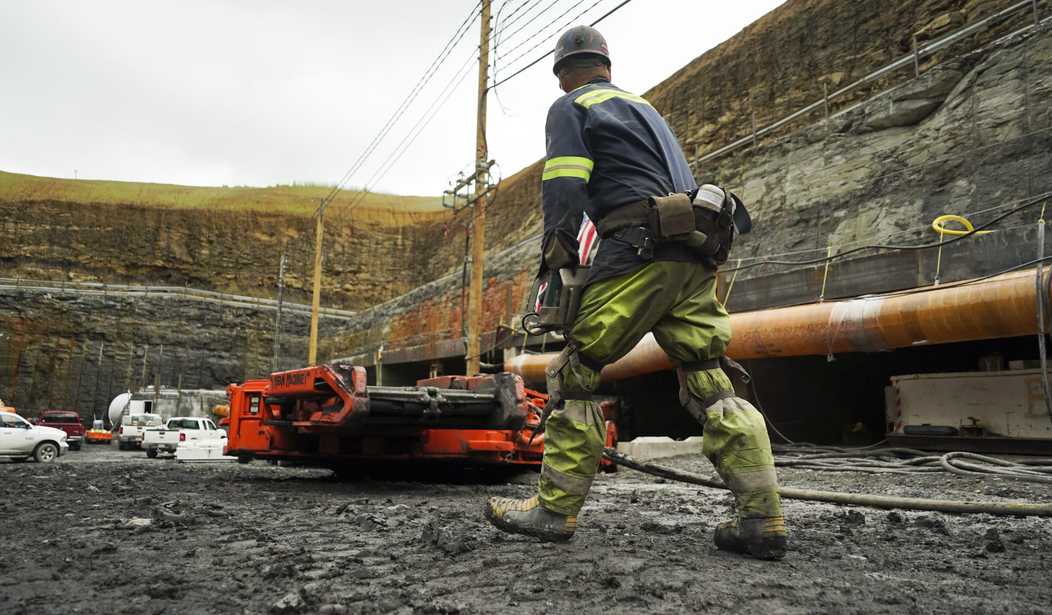WASHINGTON – Sen. Brian Schatz (D-Hawaii) said conservatives should support a carbon tax because it “would not expand the regulatory state.”
“The idea is simple: unleash markets to tackle climate change. It establishes incentives that allows capital to flow and businesses to thrive when they use clean energy, letting the free market compete and innovate and make profits,” he said during an event at the American Enterprise Institute last Wednesday.
“So we’re not telling you to reduce carbon. We’re saying, emit all the carbon you want, but you have to pay the costs of your actions rather than pushing that burden onto society as a whole,” he added.
Schatz, who has reintroduced the American Opportunity Carbon Fee Act with Sen. Sheldon Whitehouse (D-R.I.), said climate change is a “real problem that deserves serious consideration from conservatives.”
“Putting a price on carbon does not expand the regulatory state. There will not be an office created at EPA or anywhere else to manage this. It relies on the market to do the work while creating revenue and predictability,” he said. “And that predictability makes a difference for utilities, manufacturers, and anyone else that needs to make long-term infrastructure investments. Companies need certainty, and one of the main reasons for a carbon fee is to settle this thing once and for all.”
Schatz sees a “window of opportunity” to pass a carbon tax or “carbon fee” as part of compressive tax reform, which he predicted would “win support from voters.”
“I can’t think of any other way that you would get liberals voting to cut corporate tax rates,” Schatz said.
Whitehouse touted the economic benefits of the American Opportunity Carbon Fee Act.
“First, the bill lowers the top corporate income tax rate from 35 percent to 29 percent. This would cut American corporate taxes by almost $600 billion over the first decade,” he said. “Second, it provides workers with a $550 refundable tax credit – $1,100 for a couple against payroll taxes. The tax credits, which would grow with inflation, would return almost $900 billion to American households over the first 10 years.”
Whitehouse also explained that the bill would “establish a block grant program, delivering the remaining funds to states.” The remaining funds are estimated at “over $100 billion to help workers in coal country or provide coastal protection for seaside states at the discretion of the state to meet local needs and concerns.”
Whitehouse acknowledged that “coal country” is suffering but said the situation is inevitable.
“I understand the suffering in coal country. Coal country will continue to decline as natural gas drives coal out of the energy markets. There is no present mechanism now to remedy that inevitability,” he said.
“Remember Huey Long’s old slogan, ‘every man a king’? With a carbon fee, we could make every miner a king – a solid pension, retirement at any time, full health benefits for life, a cash bonus based on years worked, a voucher for a new vehicle, a college plan for their kids. These things become doable with carbon fee revenues,” he added.
Whitehouse said it is “not the miners’ fault that the coal industry has collapsed.”
“They worked hard. They did dangerous work. It is a rigorous occupation to be a coal miner and miners are entitled to respect. Give them their dignity. Make them kings. With a small fraction of the revenue from a carbon fee, we could assure every single coal miner a lifetime of comfort and financial stability,” he said.
The senators’ bill would set the “fee per ton of carbon emitted at $49 for 2018,” which Whitehouse said is based on “the central range of the social cost of carbon” that was last estimated by the White House Office of Management and Budget.
“That fee would increase each year at a real 2 percent until emissions fall 80 percent below 2005 levels, and then follow inflation,” he said. “Border adjustments for energy-intensive goods traded with countries that have weaker or no carbon pricing will make sure we protect our industries at home. We took care to design the border adjustments in harmony with World Trade Organization rules.”
“This carbon fee would produce meaningful reductions in emissions. The nonpartisan Resources for the Future projects a 36 percent drop by 2025, compared to the benchmark year of 2005, exceeding the U.S. Paris Agreement commitment significantly.”









Join the conversation as a VIP Member